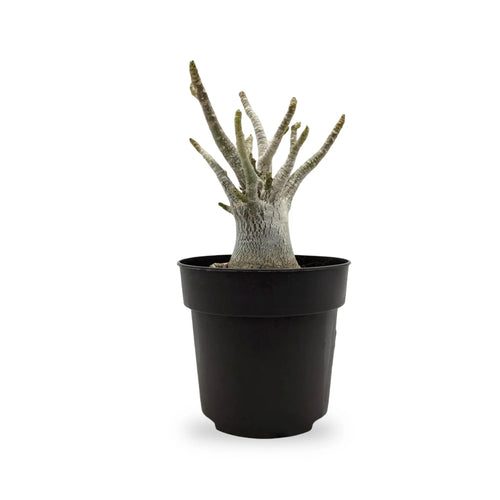Ceramic planters are an excellent way to bring beauty and design to your house or business. Whether you're a seasoned gardener or a novice plant enthusiast trying to spruce up your living areas, selecting the appropriate ceramic planters is critical. People have moved their gardens indoors since outdoor places have become scarce. Indoor ceramic planters, as well as outdoor ceramic planters, play an important role in this. In this guide, we will learn the important elements to consider when purchasing ceramic pots for indoor plants. Let us get started right now.
What Exactly Is A Ceramic Planter?
Ceramic pots for indoor plants are made chiefly of finely textured, light-coloured clay that has been glazed. After being shaped and designed, the ceramic pots are fired at high temperatures in a kiln. It reduces porosity and makes the pot less vulnerable to exterior weather elements such as rain, snow, severe heat, and so on. Here are some of the characteristics of a ceramic planter:
- They are heat resistant.
- They can absorb water.
- They are incredibly long-lasting.
- They are suitable for both pets and children.
The Benefits of Gardening with Ceramic Planters
Apart from adorning and elevating your home, ceramic flower pots and large ceramic pots for indoor plants can add a unique flavour to your surroundings. You may wonder how. Here's the solution:
Moisture Absorption
The ability of ceramic pots for indoor plants to manage moisture and airflow to plants is its most significant advantage. As a result, fertilisers are retained in the soil longer. Plants can absorb the nutrients they require before they are washed away by watering.
Sturdy
Ceramic pots for indoor plants are meticulously crafted to withstand abrupt temperature variations. Unlike cement counterparts that often degrade over time, ceramic planters maintain enduring strength, ensuring longevity and resilience. Their versatile design caters to indoor and outdoor plant arrangements, providing a stylish and durable solution for botanical enthusiasts. The inherent durability of ceramics makes these pots an ideal choice. They offer a reliable defence against the challenges posed by fluctuating temperatures, thereby enhancing the overall well-being of plants within any environment.
Versatility
They are incredibly adaptable. They may be used in any space, such as the living room, hallway, or bedroom, and will blend in with the decor and improve the aesthetics. Many commercial establishments now employ large ceramic pots for indoor plants to offer a touch of luxury.
Whether outdoors or indoors, Ceramic planters are an excellent choice for all plant parents.
Ceramic Planter Care Instructions
Anyone who enjoys gardening can go to any length to provide the finest care for their plants and containers. Many online platforms have many elegant, lightweight, and colourful ceramic planters that brighten your yard or indoor spaces.
Ceramic pots for indoor plants must be cared for carefully to ensure the longevity of both the plant and the planter. Whether you have indoor ceramic pots, outdoor ceramic pots, ceramic garden pots, or ceramic flower pots, a few care instructions will keep your plants looking beautiful for a long time.
Let us show you how.
Choosing An Appropriate Place
Consider your area carefully before purchasing a planter. Large ceramic pots for indoor plants can be incredible when complete with soil and plants. Please choose a stable and level surface for your planters. This will also prevent the ceramic pots for indoor plants from accidentally tumbling over. Furthermore, select a site that receives appropriate sunlight and ventilation for your plants. The placement of ceramic planters outdoors should also be carefully considered.
Make Use Of A Tray
Water only collects inside ceramic pots since it runs out of the drain or into the earth. However, when using planters indoors, a tray or saucer should be placed beneath the pots to prevent water from seeping onto surfaces and ruining the floor. On the other hand, overwatering can cause it to gather and flow out of the tray, causing someone to trip on the floor.
Appropriate Drainage
Both ceramic planters and the plants they house require adequate drainage. Drainage holes at the planter's base are needed to assist in the efficient evacuation of excess water. This critical characteristic reduces the chance of soggy soil, avoiding harmful circumstances such as root rot and other plant health difficulties. By ensuring appropriate drainage, you provide an ideal habitat for plant roots, promoting healthy growth and avoiding water-related stressors that could jeopardise the general health of your prized plants.
Avoid Rough Treatment
Ceramic pots for indoor plants, known for their durability, must be handled carefully, especially when covered with complex motifs. The beauty of carved patterns frequently conceals the fragility of thin-walled parts. Prudent care is required to avoid the risk of cracking or chipping. Despite their tough exterior, these planters thrive with modest care, ensuring their longevity and keeping the aesthetic details that make them resilient and visually appealing.
Consistent Cleaning And Maintenance
The allure of outdoor ceramic planters must be maintained on a regular basis. Wiping the pot with a moist cloth at frequent intervals keeps dirt at bay and ensures it retains its brilliance. Adequate ventilation is essential for preventing mould and mildew. By devoting time to these basic tasks, you maintain the planter's aesthetic appeal and contribute to its durability, ensuring it stays a lively and appealing addition to your outdoor environment.








